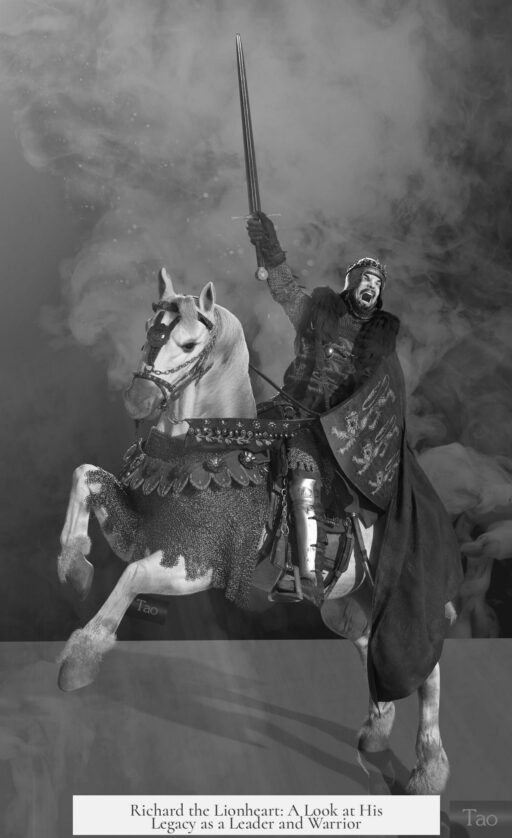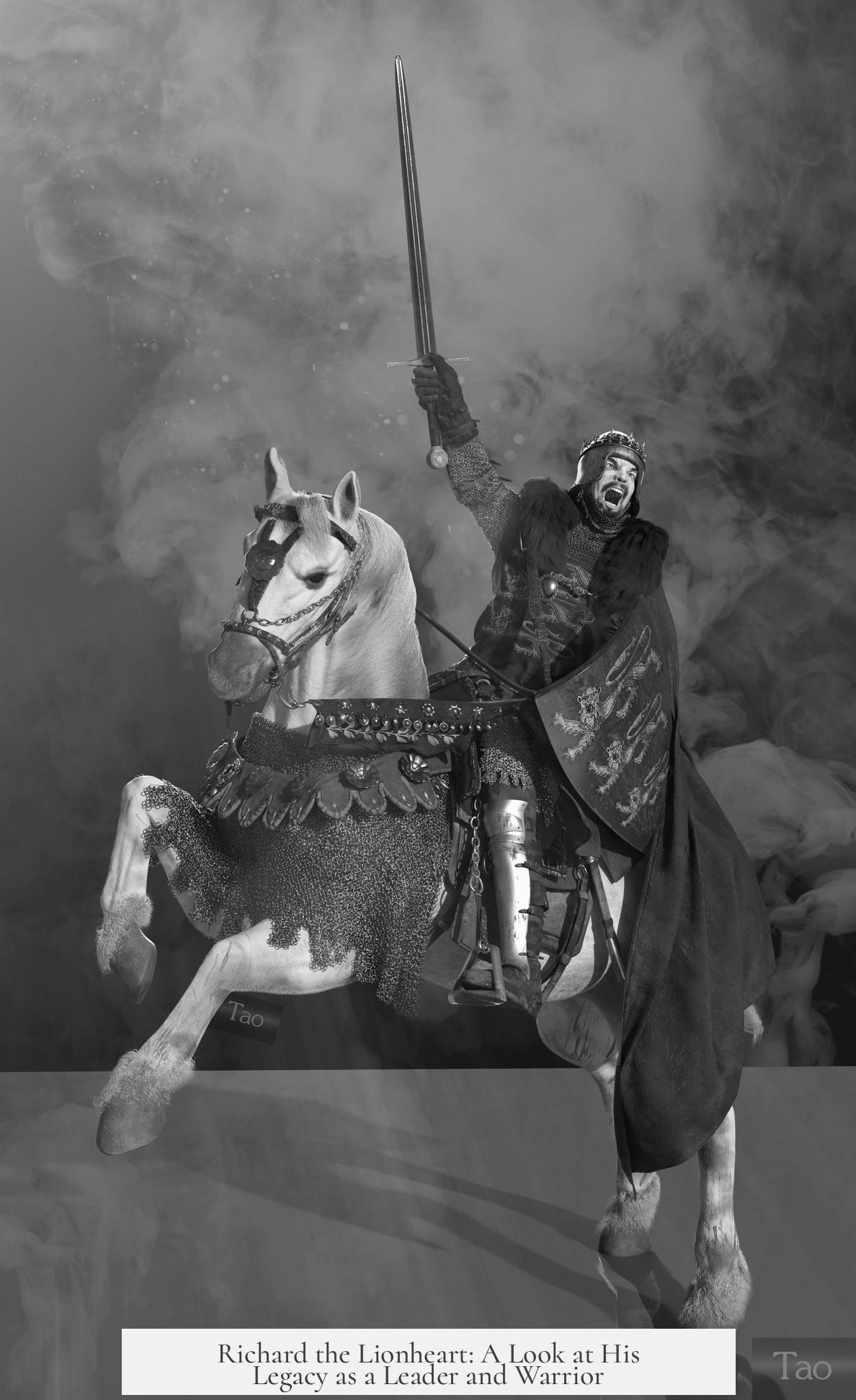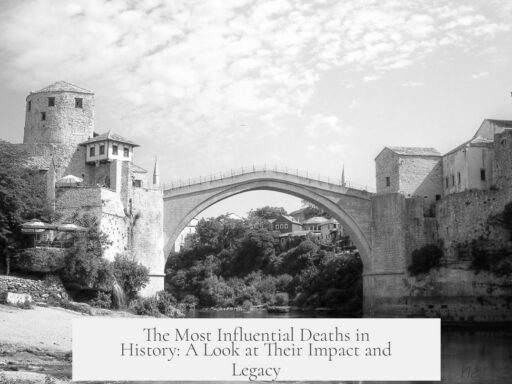Richard the Lionheart’s reputation as a king varies widely: he was both admired and criticized, with assessments depending on era and perspective. His contemporaries regarded him as a brilliant soldier and crusade leader. An Islamic chronicler, Ibn al Athir, called him “the most remarkable man of his age.” Medieval supporters praised his military skill and his stance against Muslim forces during the Crusades. Yet, near the end of his reign, heavy taxation led to unrest in England.
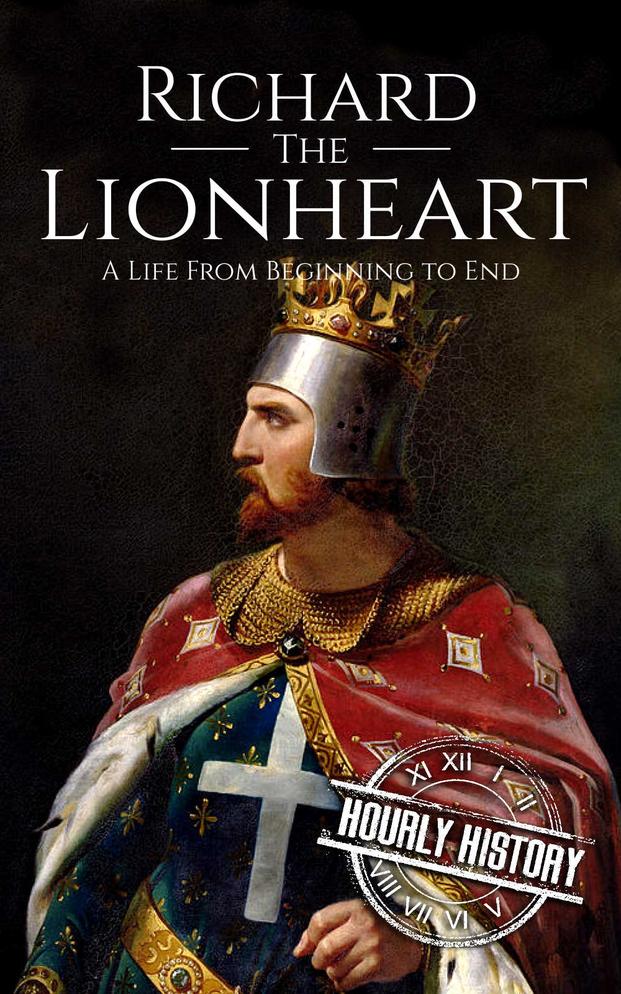
By the 19th century, historians had a less flattering view. William Stubbs, for example, described Richard as a restless war lover with little political wisdom, ineffective in peace. This shift reflects changing attitudes toward the Crusades, central to Richard’s fame.
Richard’s role in the Crusades makes understanding him complex. He was unique among English kings in engaging deeply in world events—specifically the conflict between Christianity and Islam over the Holy Land. Pre-Reformation Europe celebrated crusading; it was a sign of piety and strength. After the Reformation, crusading was seen as barbaric and misguided. Some scholars labeled it bigotry and saw Richard’s taxation to fund crusades as wasteful and harmful.
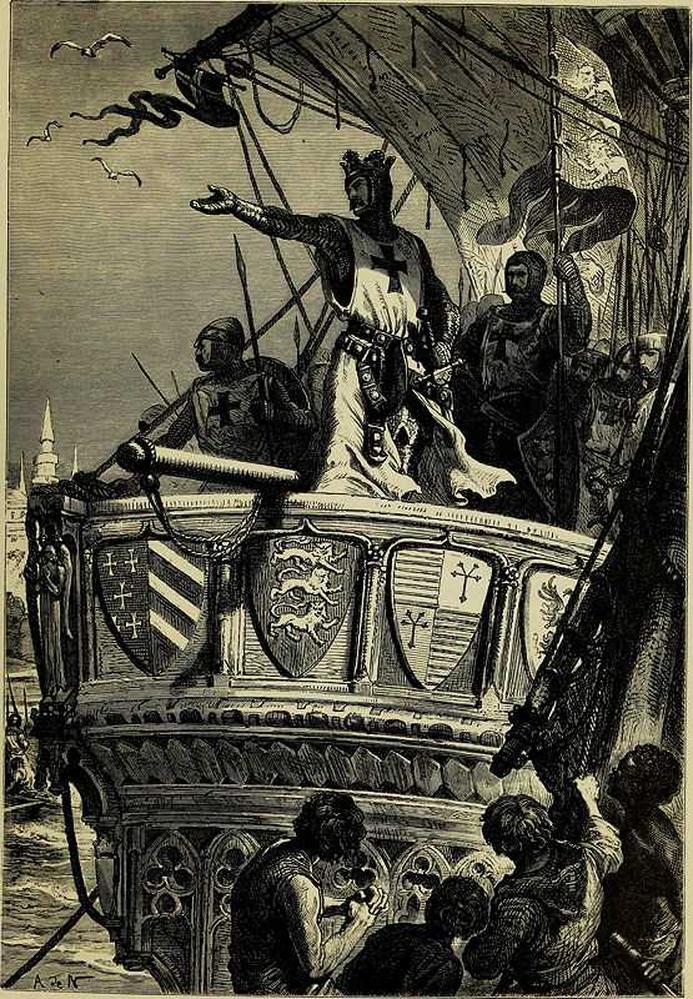
- Medieval kings prioritized warfare and defense above modern governance styles. Richard’s ambition as a warrior fits this pattern.
- He ruled an empire including England and other territories, which demanded military and political focus.
- Contrary to claims of negligence, he maintained effective control over appointments in Church and state.
- Richard was as involved in warfare and planning as his contemporary Philip Augustus of France, who spent much of his reign at war.
Administrative ability was essential to Richard’s military campaigns. Historians Turner and Heiser argue that he did not neglect governance. Instead, he maintained and strengthened existing bureaucratic structures. He relied on capable civil servants and staffed his household with loyal Anglo-Norman officials familiar with government. This administrative efficiency ensured he could raise soldiers and funds needed for his campaigns.
Richard’s government showed royal authority and competence. For instance, justices signed a declaration condemning a sheriff’s excommunication, emphasizing loyalty to the crown over local disputes. This demonstrates active royal control and governance during his reign.

Modern criticism often overlooks medieval realities. Warfare and defense defined kingship then. Richard’s efforts in diplomacy, administration, and war were generally effective. According to historian John Gillingham, Richard succeeded across all areas of kingly business, including diplomacy and politics.
Calling Richard “terrible” depends largely on perspective. If one values peace and domestic management in a modern sense, Richard may seem flawed. But judging by 12th-century standards, he ruled well. Contemporary opinions tended to be favorable compared to more negative post-Reformation or modern views.

Richard was a warrior king who ruled with energy and focused on battlefield success and territorial defense. His leadership reflected medieval values, not those of a modern state. His administrative skills supported these goals rather than neglected them.
| Aspect | Medieval View | Modern/Reformation View |
|---|---|---|
| Military leadership | Admired as brilliant soldier and crusader | Criticized as restless warmonger |
| Governance | Seen as effective, maintaining administration | Seen as neglectful and negligent |
| Crusading | Viewed as holy and praiseworthy | Considered barbaric and wasteful |
| Taxation | Necessary for war effort, accepted by many | Blamed for burdening England |
Key takeaways:

- Richard the Lionheart’s reputation fluctuates by time period and historian perspective.
- Contemporaries and some medieval chroniclers praised him as a great military and crusading leader.
- Later historians, especially post-Reformation, criticized his focus on war and crusading.
- Richard combined military skill with effective administration suited to medieval kingship.
- His governance allowed successful fundraising and defense of his realms across England and continental possessions.
- Judging Richard fairly requires understanding medieval values and the geopolitical context of the 12th century.
How Terrible Really Was Richard the Lionheart?
Richard the Lionheart was not the terrible king some imagine but a complex and effective ruler, admired in his time and misunderstood by later generations. Let’s unpack this famous king’s legacy with fresh eyes and dive into why historians have such wildly different opinions of him.
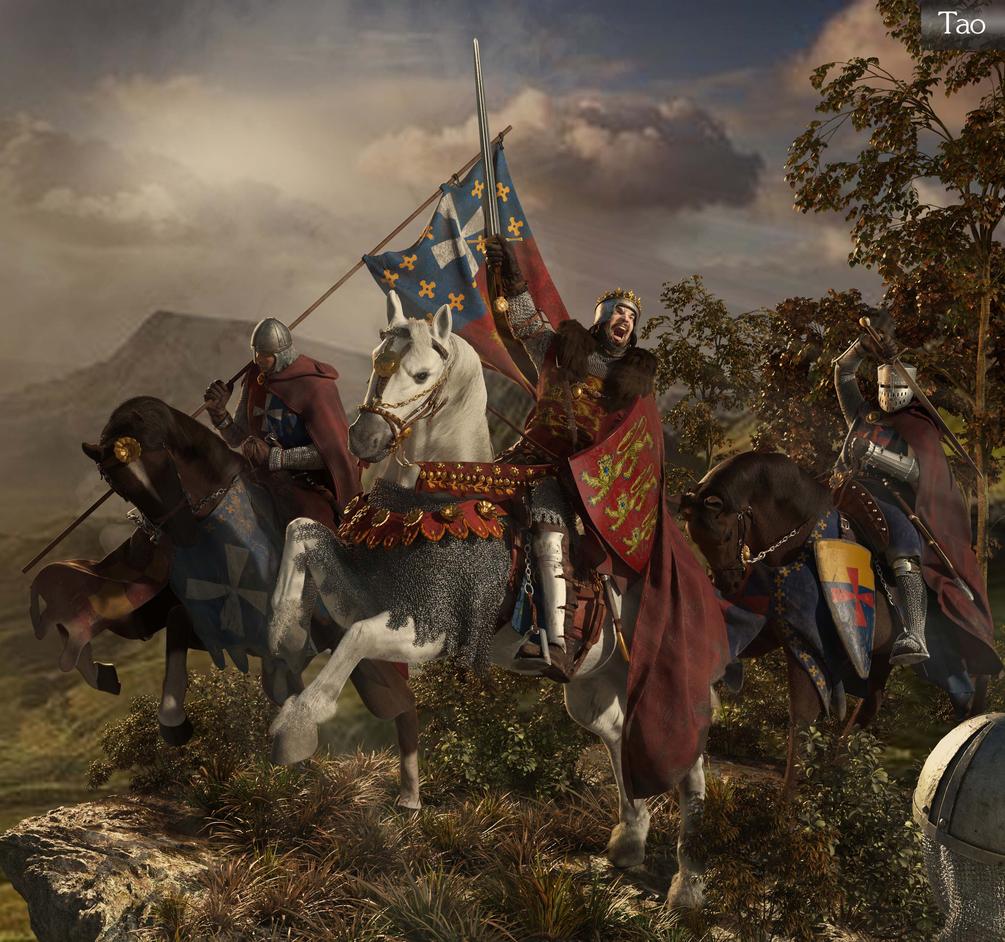
Richard: Hero of His Time or Neglectful Ruler?
First off, Richard’s reputation is all over the map. Fans from his own era hailed him as the greatest of kings. They loved his military skill and crusader zeal. One admirer claimed Richard’s exploits were so grand they left everyone amazed. Even unexpected voices, like an Islamic chronicler named Ibn al Athir, called him “the most remarkable man of his age.” That’s pretty high praise, even from an enemy.
But it wasn’t all roses in England. As his reign wore on, some grumbled about heavy taxes needed to fund his crusades. So while a lot of people were cheering, others weren’t thrilled with the financial burdens.
Jump ahead to the 19th century and you get a totally different tune. Historian William Stubbs calls him “a bad ruler,” criticizing Richard’s “restlessness” and saying war was his passion, not politics. Stubbs paints him as a guy who was great at battle but clueless about running a kingdom peacefully.
Talk about a flip flop!
Why Do Views of Richard Swing So Much?
Professor John Gillingham has a clue: these views are tied to how people see the crusades—those medieval wars over the Holy Land. Richard was unique among English kings because he actually led a crusade. That made him a giant figure in the medieval “world history” of Christianity versus Islam.
Back then, crusading was noble. Nigel Saul explains it well: before the Reformation, fighting to reclaim the Holy Land was *the* badge of honor for Christian kings. Success in the crusades was proof of divine favor. Richard’s wins made him look fantastic when compared with, say, the French king, who didn’t do so well in those battles.
Fast forward to after the Reformation. Protestant thinkers hated crusading. They saw it as barbaric, bigoted, and puppeteered by the Pope. Big names like David Hume called crusades “human folly.” Since Richard was the crusader king, *his* reputation took a nosedive too. Now the taxes that funded his wars looked like wasted treasure on a lost cause.
The “Neglectful” King Versus the Real Medieval Monarch
Some say Richard was a warrior who ignored government, draining resources like there was no tomorrow. But that’s judging a medieval king by modern standards. At that time, war and defense were a ruler’s main jobs.
Historians Turner and Heiser remind us that Richard ruled a patchwork empire, not just England. And he paid attention to government appointments both at home and abroad. He couldn’t ignore threats like Philip Augustus vying for French lands or the powerful Muslim leader Saladin threatening the Holy Land. Fighting was part of the job for both kings, though Philip stayed closer to home.
Was Richard a Zero at Administration? Far From It.
It’s easy to assume Richard didn’t care about running his kingdom, but evidence tells a different story. He needed good administration to fund his crusades and armies and actually made that happen.
He kept the existing administrative system running smoothly. Those civil servants weren’t just cogs; they felt loyalty to their king. For example, justices protested when a sheriff was excommunicated, calling it an insult to the king’s dignity.
Richard filled his household with Anglo-Normans skilled in government and military experts loyal to him. This shows he valued trusted people who could manage the nuts and bolts of ruling.
So, How Effective Was Richard Overall?
Richard tried hard, and he succeeded in many areas. Gillingham calls him “unusually effective” at everything from government to diplomacy and warfare.
Of course, if you judge Richard by 21st-century ideas of leadership—peaceful diplomacy, constant presence at home, and economic growth—he might fail. But in the 12th century, leadership meant war readiness and loyalty enforcement.
Therefore, deciding whether Richard is “terrible” depends on your perspective and values. If you listen to his contemporaries, they thought he did a pretty darn good job. Later critics, far removed from medieval realities and obsessed with more modern politics, see him less kindly.
Why Does This Matter Today?
This debate isn’t just about Richard. It’s a reminder to check our modern biases when judging historical figures. Context matters. What worked in the 1100s might not impress today’s fans of stability and budget balancing. So when you hear “Richard the Lionheart was terrible,” pause and ask: terrible for whom, and by what standards?
Final Thoughts: Richard’s Legacy in a Nutshell
- To his peers: Richard was a heroic warrior king and crusader.
- To later Protestant critics: his crusades and taxes made him a villain.
- Modern historians: he was a complex ruler who balanced war, administration, and diplomacy effectively.
- His kingdom needed a warrior king—and Richard played that role well.
Richard the Lionheart might not be your textbook “good king” by today’s standards, but calling him truly terrible? That’s an oversimplification. He was a man of his age, coping with the demands of empire, war, and faith in ways his contemporaries respected and later ages misunderstood.
“Judging a ruler’s political skill, more weight might be rightly given to the views of his contemporaries rather than those formed centuries later.” — John Gillingham
Questions to Ponder
- Do we expect too much modern governance from medieval kings?
- How much should changing religious and cultural values affect how we view historical figures like Richard?
- Can someone be an excellent military leader yet a poor political one—or vice versa?
History loves complexity. And Richard’s story proves it.
Was Richard the Lionheart really a negligent ruler who ignored his kingdom?
Richard is often called negligent. Yet, as a medieval king, his focus was warfare and defense. He kept key appointments and managed his realms well. His actions suited the needs of a warrior monarch of his time.
How did Richard’s role in the Crusades affect his reputation?
Richard’s crusading boosted his fame in the medieval religious world. Later, views shifted. Reformers saw crusades as brutal and wasteful. This change lowered his standing, linking him to expensive wars and unpopular religious conflict.
Did Richard manage his kingdom’s administration effectively?
Richard maintained a strong administrative system. He relied on capable officials and loyal Anglo-Normans. His government worked well to raise funds and armies, proving he valued good governance alongside military goals.
Why do historians’ views of Richard the Lionheart differ so much?
Opinions vary by era and viewpoint. Some admire his military skill and leadership. Others criticize his lack of peacetime governance. Changes in religious and political beliefs shaped how Richard’s actions were judged over time.
Was Richard more successful in war than in ruling his kingdom?
Richard was effective in war and government. He defended his lands well and handled diplomacy, administration, and politics with skill. His success covered all areas expected of a king in his period.
